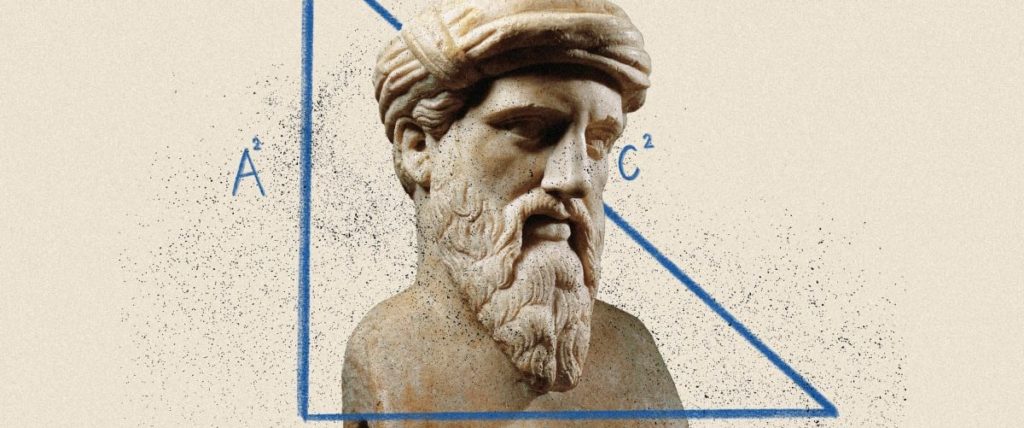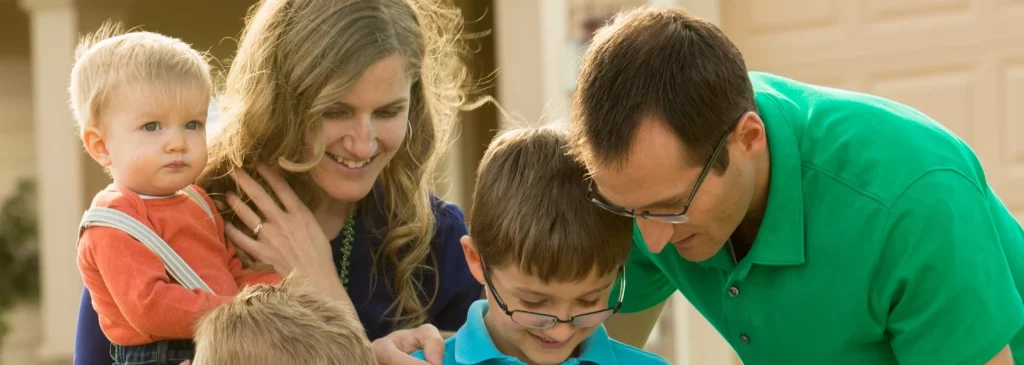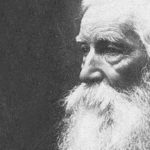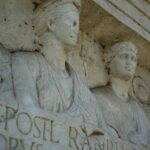
What is Paideia? Why Should Christians Care?
Many people in ancient Greece were concerned about democracy. They believed that ordinary people couldn’t be trusted to make good decisions. Plato famously said that the voters would eventually fall victim to the “false and braggart words” of a tyrant.
Plato argued that only philosopher kings should rule. However, others argued that democracy could be a good thing, but that it would be dependent upon the people’s ability to think well. To ensure that Greek culture would flourish, the Greeks developed their paideia. That would be their best defense against tyranny and their best asset in propagating Greek culture.
What is Paideia? Paideia refers to a worldview, a way of life, or set of cultural values. The word paideia was often used in ancient Greece to describe the worldview that they believed a person needed to have in order for that person to be a good Greek citizen. The Greek paideia incorporated their approach to education which was committed to giving students a broad understanding of the world and was focused on training them to think, reason, and communicate well.
The focus of education in ancient Greece was the development of the person’s whole being, what we might call character development. The aim was to train students to be noble persons that were capable of propagating and enriching Greek culture.
Paideia: Definition and Brief History
There’s not a perfect English translation for the word paideia, and different ancient sources used the word slightly differently. Bit we can still figure out (generally) what the word referred to. Today, paideia is often translated as “education” or “culture,” though many people prefer to think of it simply as “self-development.”
The word paideia derives from two ancient Greek words: pais (meaning “child” or “boy”) and edos (meaning “education” or “upbringing”). In the most literal sense, pais sometimes was used to refer to what Greek children learned at home from their families, before going off for formal education. The term edos originated in Athens and it was most often used to refer to their formal education efforts.
When the term paideia was first used, it described the way a person needed to be in order for them to help enhance the Athenian democracy. The Athenians wanted to train their young people to grow up to be adults that would propagate and defend their brand of democracy. They didn’t want to merely pass along information to the next generation, they wanted to pass along a way of thinking and a way of being and a way of carrying oneself. The word later took on slightly different (and broader) meaning.
Plato defined paideia as “the art of living as well as possible.” He believed that education needed to go far beyond learning facts or hard skills, but learning how to live well within the community, and learning how to help enrich that community too. The key to this, according to Plato, was instilling in students the four primary virtues: courage, moderation, wisdom and justice.

Broad and Formative Curriculum
Have you ever wondered why Greek philosophers like Pythagoras, Thales of Miletus, and Euclid were also great mathematicians? It’s because the Greeks didn’t see mathematics as being necessarily separate from philosophy. They sought to explore and connect all aspects of life. This was a big part of how they trained students.
The Greeks had a clear vision of what they needed from their citizens. If Greek societies were going to flourish, they needed to produce citizens that could think deeply about the societal issues, citizens that could clearly see through the potentially harmful ideas being proposed by a would-be tyrant. For that to be a reality, they needed a society of people who understood a lot things about a lot things.
The ancient Greek education included metaphysics, mathematics, astronomy, philosophy, theology, literature, morality, ethics, aesthetics, physical training, music, and even cooking. All of this was included with the goal of shaping minds wholistically, teaching them to use the lessons they learned from these diverse disciplines to become good citizens.
They also knew that they needed a society of good listeners, good thinkers, and good communicators. Teaching their young people to be able to argue well about the things they had learned was a core part of everything they did. A significant component of the Greek training was logic and rhetoric. Students were expected to be able to logically connect concepts across disciplines and tie them together to make strong cohesive arguments.
The Greeks also knew that they needed future citizens that loved Greece. Therefore they sought to cultivate affection for Greece in the hearts and minds of their young people, hoping to inspire students to have affection for the Greek way of life. Many of the activities in the formal Greek educational initiatives were designed to spark a sense of cultural (or nationalistic) pride and an esteem for the Greek paideia. They sought to help students understand the value of nobility and to have an appreciation beauty, and then they highlighted the nobility and beauty that existed in Greek culture.
They were not merely spoon feeding their young students a bunch of Greek propaganda. This was not a form of indoctrination. Instead, they aimed at shaping and shepherding young people toward a genuine love of Greek culture, toward willingly embracing the Greek paideia, the Greek way of life. They wanted students who would willingly take up the mantle of defending the glory of Greece.

Education as Formation and The Modern Movement
The Greek paideia, along with their ways of passing it down to the next generation, didn’t end with the Greeks. The Romans embraced this same worldview and approach, it eventually spread throughout the Roman empire.
Later, as Christianity spread throughout the empire in the first and second centuries, many of the Christian leaders used those Roman-Greco principles and protocols to mentor and catechize new converts. The biblical paideia and Christian way of life was systematically passed from one generation to the next. This would be the foundation for education and spiritual formation for the early church era and for the entirety of the Middle Ages.
The modern classical Christian education movement is largely inspired by those early Christians and their embrace of the classical approach to education. The proponents of this contemporary classical Christian movement assert that we ought to seek to train people into the paideia of God, shaping them to think the way God wants them to think, to live as God intends for them to live, and to fiercely defend God’s truth in logical and compelling ways. There are several popular contemporary home-school curriculums that also use this same classical approach.
Education ought to be all about developing the whole person, growing into a mature and responsible citizen. It’s an approach that encompasses both intellectual and moral development. At the college where I teach, Bethlehem College and Seminary, we’ve embraced this approach. Dean of Admissions Jonathon Woodyard recently put it this way: “Our greatest concern is not graduating men and women who do a specific job, but shaping particular types of people who can flourish in any vocation. We care more about what you become than what you do.”
This approach informs what we include in the curriculum and what we don’t. This shapes our institution’s values, budget, and operational protocols. It shapes who we hire and even who we accept into our programs.
We aim to export students into the world with a distinctly Christian way of life and culture. For us, education is formation, not merely data transmission. We believe that this approach is the ideal way to approach education and we gladly exhort any and all educational institutions to genuinely have formation and character development at the heartbeat and core of all you do.
Not all components of the ancient Greek approach to education are directly relevant to our society today, but the fundamentals of their approach can still serve us well. It would serve our society well to have a bunch of people who know what it means to be noble, who can think well, and can contend for the truth—and, quite frankly, those types of people might very well be the ones to save our civilization from the devastating effects of neo-paganism and expressive individualism that we’re currently experiencing.

Training Our Children
The ancient Greeks believed that their paideia was essential to their survival. The ancient Greek city-states lived in a tumultuous and unstable world. They knew that to survive, they needed to pass their worldview and culture down to the next generation. They knew that training their young was their best asset.
The Greek word for child comes from the same stem as the word for citizen. There’s a potentially something implied there, that maybe we ought to look at children as future adult citizens, not merely as young humans. The Greeks understood that we are always just one generation away from losing the culture we love and value, therefore we must train our kids to be the type of people who will grow up to love and defend that culture too. This ideological shift may seem subtle to some, but it has monumental impact on how we raise children.
As Christians, we know that God gives clear prescriptions for how to be good citizens. The Greeks sought to teach their youth to do what was right and noble, but they used their own cultural standards to determine what was right and noble. As believers in Jesus, we use the Bible as the means of determining what is right and noble. We don’t use neo-pagan values or pop-culture trends or societal norms, we rely on God’s word.
Just as the Greeks believed that education was necessary for the success of a city-state, so too we ought to understand that education is an important and necessary component for the success of the Christian worldview. Just as the ancient Greeks thought that their paideia was important enough to pass along, because it incorporated their morals, we as Christians also ought to value our paideia, the paideia of God, because we know that the absolute importance of teaching our children about God’s moral values.
The apostle Paul wrote, “Fathers, do not provoke your children to anger by the way you treat them. Rather, bring them up with the discipline and instruction that comes from the Lord” (Eph. 6:4). Christians must take this seriously. We must embrace the paideia of God!
Problems in Modern Education
Contemporary educational systems don’t teach our students how to think well. Students are not encouraged to question their assumptions about the world around them. College degree programs are sometimes broad, but not strategic or cohesive. Colleges often offer a “choose your adventure” approach to education, allowing students to just randomly select from a buffet of unrelated courses.
Quite frankly, our nation’s modern schools do not produce quality critical thinkers who can adapt their knowledge whenever necessary. This contributes directly to many of the social problems we face today.
The classical Greek approach to education had been a part of the American educational system until the early 20th century when progressives like John Dewey largely remade American education to serve nationalistic purposes.
In 1943, C.S. Lewis penned The Abolition of Man in which he outlined, in part, some of the significant and fundamental failures of this shift in educational philosophy. Lewis argued that the modern progressive movement had stripped genuine truth and humanity from our education systems, which has now resulted in the “abolition of man.”
In addition to Lewis’ book, several essays and books from writers like Mortimer Adler and Dorothy Sayers, have helped to reinforce Lewis’ points and helped to inspire the modern classical Christian education movement.
Conclusion
I’m not contending that ancient Greece is the perfect model. There were flaws. There was a lack of equality (only boys from aristocratic or rich families were educated). Many Greeks had warped views of women and of non-Greeks. And disgusting sexual abuse ran rampant in many part of Greece. They certainly did not have a moral code that we’d fully endorse.
However, their commitment to training and shaping the next generation into their paideia, in a robust and systematic fashion, was tremendously effective. They were great at teaching students to be good citizens and good critical thinkers. Their approach is worth examining.
We can take the Greek ideas and systems and commitments, and we can turn around and use it to inform our educational efforts, our liturgies, and our pedagogies. We can use those ideas to train our children in the fear and admonition of the Lord—in our homes, in our churches, and in our Christian schools. We would be wise to emulate much of the classical Greek approach to education.
Kenneth E. Ortiz (Th.M.) is Lead Pastor of Horizon City Church and Ph.D. Candidate at Midwestern Seminary. He has 15+ years of vocational ministry experience. Kenneth previously served as a professor at Bethlehem College and adjunct faculty at Spurgeon College. Kenneth lives in Minneola, FL with his wife Malaina, they have three kids.


